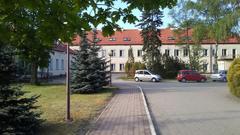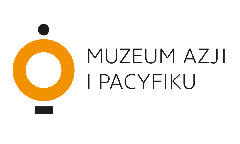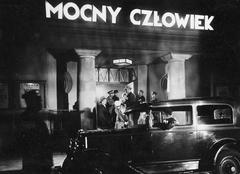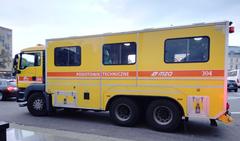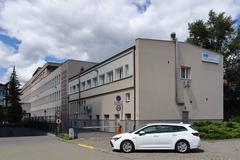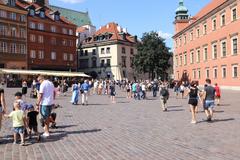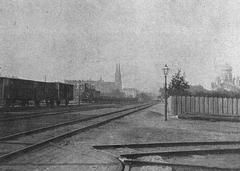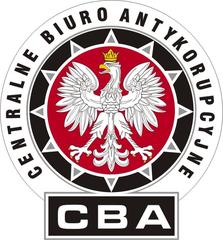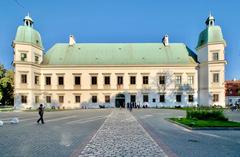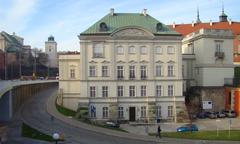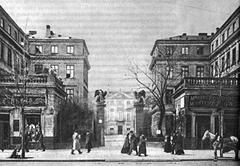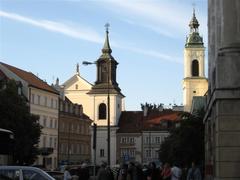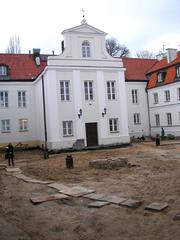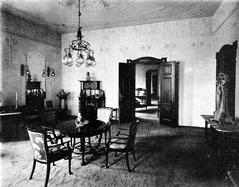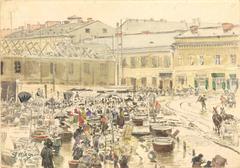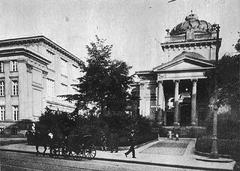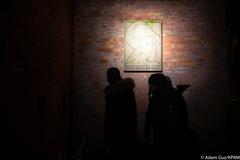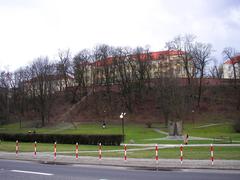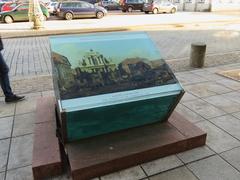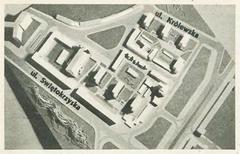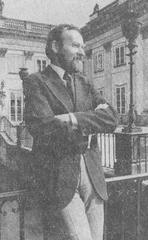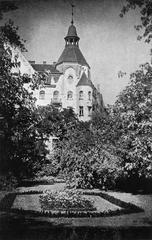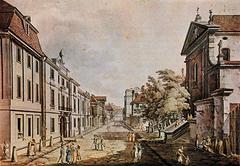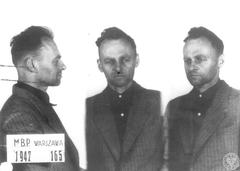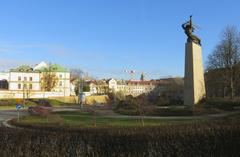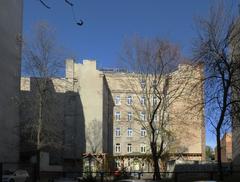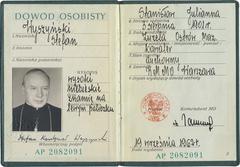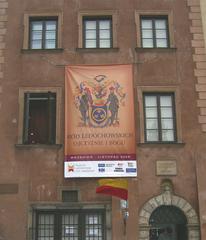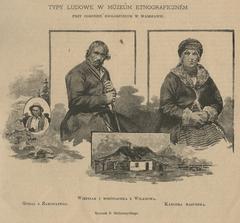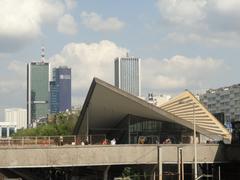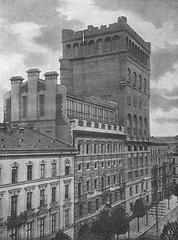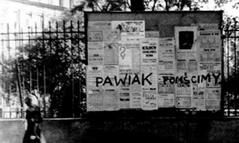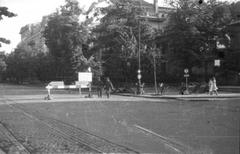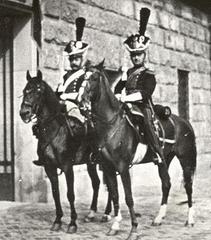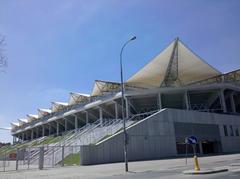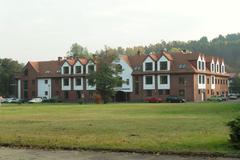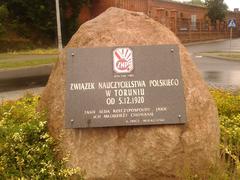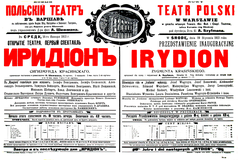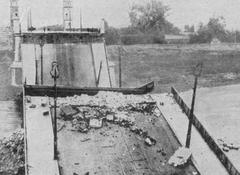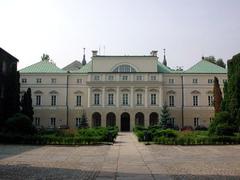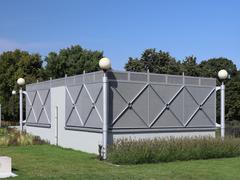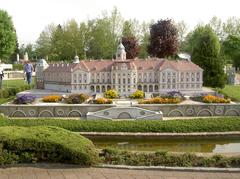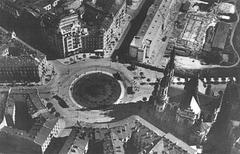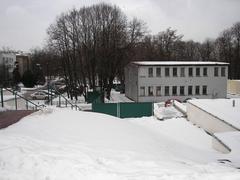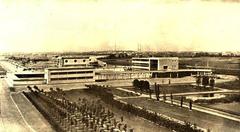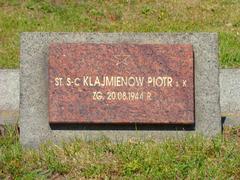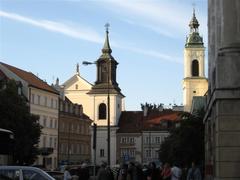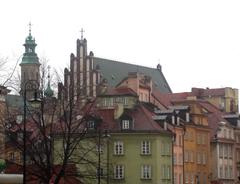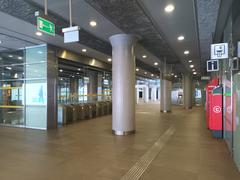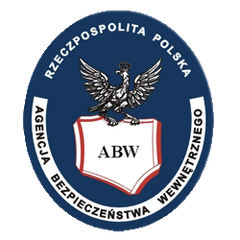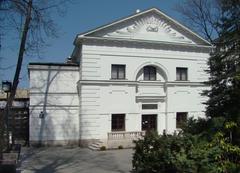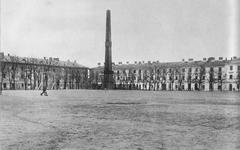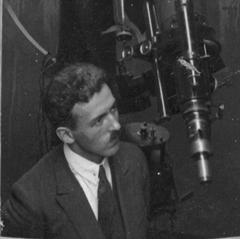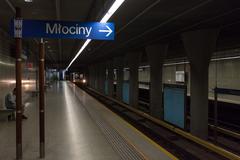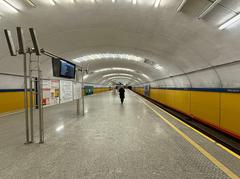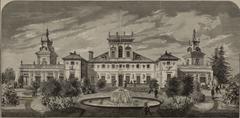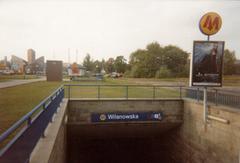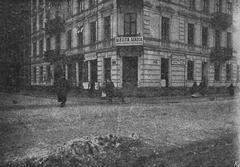
Institute of Psychiatry and Neurology in Warsaw: Visiting Hours, Tickets, and Visitor Information
Date: 04/07/2025
Introduction
The Institute of Psychiatry and Neurology (Instytut Psychiatrii i Neurologii, IPiN) in Warsaw stands as a cornerstone of Polish medical history, innovation, and cultural heritage. Established in 1951 to rebuild mental health and neurological care after World War II, the Institute has evolved into a multidisciplinary hub encompassing clinical services, pioneering research, and education (Institute of Psychiatry and Neurology).
Whether you are a medical professional, researcher, student, or cultural tourist, a visit to IPiN offers a unique opportunity to engage with Poland’s mental health legacy—through guided programs, renowned exhibitions, and public lectures. Its accessible campus in the Mokotów district is not only a testament to post-war resilience but also a convenient starting point to explore nearby attractions like Łazienki Park and the Warsaw Uprising Museum. This guide covers historical context, visitor protocols, accessibility, and practical tips to help you plan your visit.
Historical Overview
Founding and Early Development (1950s–1960s)
Founded in 1951, the Institute responded to the urgent need for specialized psychiatric and neurological care in post-war Poland. Under the leadership of figures like neurophysiologist Jerzy Konorski, IPiN quickly became a multidisciplinary institution, integrating patient care, research, and education (Institute of Psychiatry and Neurology).
Expansion and Scientific Contributions (1970s–1980s)
The 1970s and 1980s saw IPiN expand its research and clinical roles. The Institute promoted community-based care and developed the celebrated brain collection initiated by Professor Ewa Osetowska. It also became a training center for generations of mental health professionals.
International Recognition and WHO Collaboration (1990s–2000s)
In 1992, IPiN was designated a WHO Collaborating Centre, gaining global recognition for its contributions to mental health policy and quality assurance (NCBI PMC). The Institute also adopted user feedback mechanisms to improve patient care.
Modernization and Contemporary Role (2010s–Present)
Today, IPiN is Poland’s foremost center for psychiatric and neurological disorders, with a strong emphasis on community care and advanced research facilities. Its ongoing modernization ensures patient-centered, evidence-based care.
Institutional Mission and Core Functions
Clinical Services
IPiN provides comprehensive care across psychiatry and neurology, including adult and child psychiatry, neurorehabilitation, addiction treatment, geriatric psychiatry, and psychosomatic medicine. The Institute serves as a national referral center, handling thousands of inpatient and outpatient cases annually (PubMed study).
Research and Innovation
The Institute leads national and international research in psychiatry, neurology, and neurobiology. Its epidemiological studies and collaborative projects influence mental health policies and clinical guidelines across Europe (PubMed study).
Education and Training
IPiN offers postgraduate training for mental health professionals and hosts conferences and workshops, strengthening Poland’s medical workforce through partnerships with major universities.
Visiting the Institute: Practical Information
Visiting Hours
- General Hours: Monday to Friday, 9:00 AM to 5:00 PM
- Weekend Visits: Possible by prior arrangement for special events or tours
Note: As a functioning hospital and research center, general visitors should book in advance. Public access is primarily for guided tours, exhibitions, lectures, or academic purposes.
Ticket Information
- Admission: Free to public exhibitions and events
- Guided Tours: Advance registration required; some may involve a nominal fee
Booking and Visitor Eligibility
- How to Book: Use the official website or contact the visitor center for appointments and event registration.
- Who Can Visit: Patients and families (per hospital protocols), medical professionals, researchers, students, and members of the public attending scheduled events.
Guided Tours and Educational Programs
Specialized guided tours explore the Institute’s history, research, and unique brain collection. Educational programs are available for students, schools, and professionals.
Accessibility
The campus at Jana III Sobieskiego 9 is fully accessible, featuring ramps, elevators, and accessible restrooms. Visitors are encouraged to notify staff in advance for additional assistance.
Directions and Travel
- Location: Mokotów district, Warsaw
- Public Transport: Served by city buses and trams
- Parking: Limited on-site parking; public transit recommended
- Nearby Attractions: Łazienki Park, Museum of Modern Art, Warsaw Uprising Museum (Warsaw Official Tourism Site)
Photography and Conduct
- Photography: Permitted during guided tours and in public areas, with restrictions inside clinical zones for privacy.
- Visitor Conduct: Silence and discretion are requested in patient care areas.
Cultural and Social Context
Historical and Societal Role
IPiN has shaped Poland’s mental health care, adapting to political changes and modernizing practices after the fall of communism. It pioneered family therapy and community-based models, and its training programs have set standards nationally (NCBI PMC).
Social Impact
The Institute combats mental health stigma through education and outreach. Its research into involuntary admissions and socio-demographic factors informs public health strategies (PubMed study).
The Institute as a Landmark
Architecture and Heritage
The Institute’s building is a post-war architectural monument, blending functionality with period aesthetics. It symbolizes Poland’s commitment to medical advancement and is a popular subject for photographers.
Art and Exhibits
Unique features include artworks like “Sleeping Stas” by Stanisław Wyspiański in the Sleep Disorders Center, which reflects the intersection of culture and medicine (Sleep Disorders Center).
Frequently Asked Questions (FAQ)
What are the Institute’s visiting hours?
Monday–Friday, 9:00 AM–5:00 PM; weekends by appointment.
Is there an entry fee?
Public exhibitions and most events are free; some tours may require a fee.
Are guided tours available?
Yes, with advance booking; subject to availability and event schedule.
Is the Institute accessible for people with disabilities?
Yes, with ramps, elevators, and accessible restrooms. Notify in advance for special assistance.
Can tourists visit clinical areas?
No, clinical areas are restricted for privacy; public access is limited to exhibitions and events.
How do I book a visit or tour?
Visit the official website or contact visitor services.
Can I take photographs?
Photography is allowed in designated areas; not permitted in clinical zones.
Planning Your Visit: Final Tips
- Check the official website for up-to-date visiting hours and event information.
- Book tours and special events in advance to secure your spot.
- Use public transport to avoid parking difficulties.
- Respect privacy and conduct protocols during your visit.
- Combine your visit with nearby Warsaw attractions for a full cultural experience.
Useful Links
- Institute of Psychiatry and Neurology (official site)
- Warsaw Official Tourism Site
- NCBI PMC article on Polish psychiatry history
- PubMed study on psychiatric hospitalization seasonality
- PubMed study on involuntary psychiatric admission in Poland
- Institute of Psychiatry and Neurology Cultural Heritage Page
- My Wanderlusty Life’s Warsaw guide
- Sleep Disorders Center
Conclusion
The Institute of Psychiatry and Neurology in Warsaw is a compelling destination for those interested in the intersection of science, history, and culture. Its legacy as a leader in psychiatric and neurological care, ongoing research, and openness to the public through events and exhibitions make it both a pivotal medical institution and a meaningful cultural landmark.
For the latest visiting information, event updates, and to book your experience, consult the official website and Warsaw’s tourism portal. Enhance your experience with the Audiala app and stay connected via social media.
Plan your visit today to witness how IPiN continues to shape Poland’s health landscape and cultural heritage (NCBI PMC; PubMed study; PubMed study).





